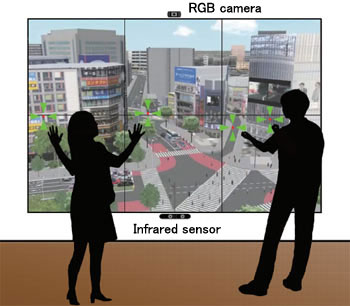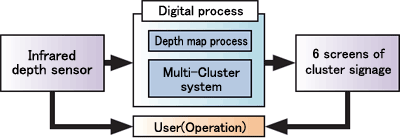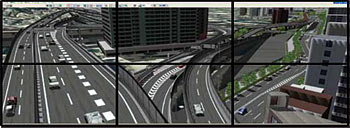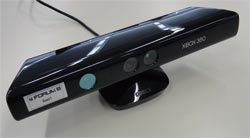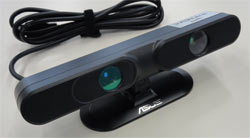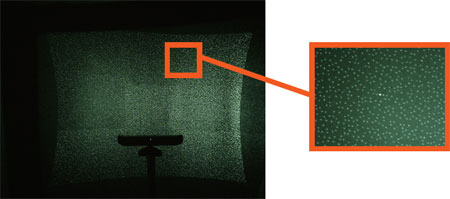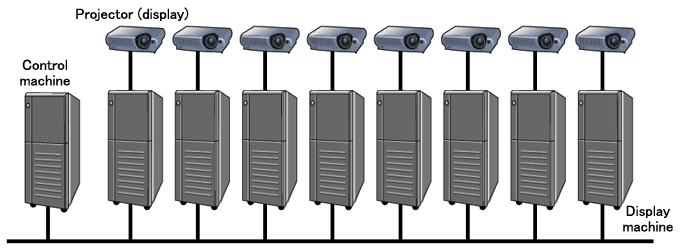In the case of advertisement, the detailed information is displayed, and the special effects such as wind and vibration are added to the movie.
One of the actual examples is REACT by ITTOCAN (Figure1). The REACT is the drawing engine of the video installation for the space creation using RGB camera sensor. The special effect is added based on the human behavior such as waving the hands and walking in front of the camera.
The cluster system is structured by PC built-in display, and it can be displayed on multiple screens.
The Intel digital signage end cap is one of the interactive digital signage (Figure2). It is the shopping terminal using RGB camera and infrared depth sensor. With the facial recognition technology, the product appropriate for the person is displayed by the assumption of the gender and age from the face.
In addition, it is possible to select and purchase the products without touching the screen by detecting the human movement with infrared depth sensor.
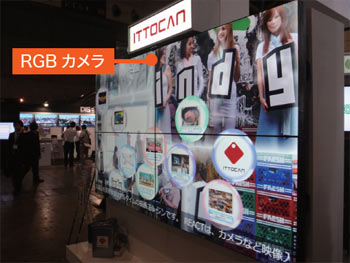 |
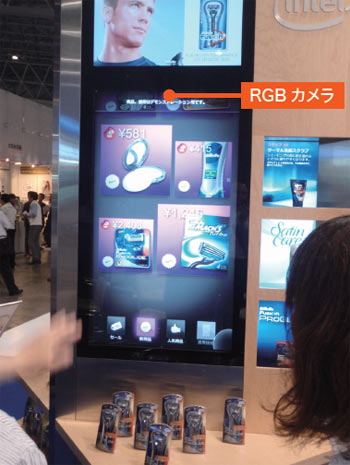 |
|
| Figure1(Above) REACT by ITTOCAN (Exhibition booth of Digital Signage Japan 2011) |
||
| Figure2(Right) Digital signage end cap by Intel (Exhibition booth of Digital Signage Japan 2011) |
||
| *Digital Signage Japan 2011 URL:http://www.f2ff.jp/dsj/ |
